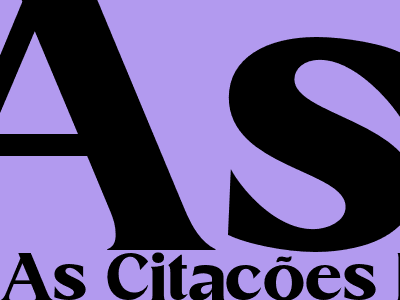Why Indirect Citations Should Be Avoided in Academic Writing
Introduction
Indirect citations, which occur when an idea or concept is paraphrased or summarized from a source and attributed to another source that cited the original work, can weaken the credibility and reliability of academic research. Avoiding indirect citations is crucial for maintaining the integrity and accuracy of scholarly work.
Detrimental Effects of Indirect Citations
Diminished Credibility
Indirect citations lack the direct connection to the original source, making it difficult for readers to verify the accuracy and validity of the information presented. This can undermine the credibility of the author and the overall research.
Accuracy Concerns
In the process of paraphrasing or summarizing, there is a risk of misinterpreting or altering the original meaning of the source. Indirect citations can perpetuate inaccuracies or distortions, compromising the integrity of the research.
Lack of Transparency
Indirect citations obscure the direct source of the information, making it challenging for readers to assess the credibility and relevance of the cited work. They hinder the ability of readers to engage with the original source and form their own interpretations.
Benefits of Avoiding Indirect Citations
Enhanced Credibility
By citing sources directly, researchers demonstrate a commitment to accuracy and transparency. Direct citations allow readers to access the original work and evaluate its relevance and validity, bolstering the credibility of the research.
Accuracy and Precision
Direct citations ensure the precise and accurate representation of the original source's ideas and findings. They eliminate the risk of misinterpretation or alteration that can occur with indirect citations.
Transparency and Accountability
Direct citations promote transparency in research by providing a clear and direct connection to the original source. They facilitate accountability and allow readers to hold the author responsible for the accuracy and validity of the information presented.
Guidelines for Avoiding Indirect Citations
- Consult the original source whenever possible.
- Paraphrase or summarize information only when it is absolutely necessary.
- Cite the original source directly in the text.
- Use quotation marks if citing verbatim.
- Follow the citation style guidelines of the specific discipline.
Conclusion
Indirect citations pose significant risks to the integrity and accuracy of academic writing. By avoiding indirect citations and adhering to best practices for direct citation, researchers can enhance the credibility, accuracy, and transparency of their research, ultimately contributing to a more rigorous and reliable scholarly discourse.

As Citações Indiretas Devem Ser Evitadas Em Um Trabalho Acadêmico
Comments